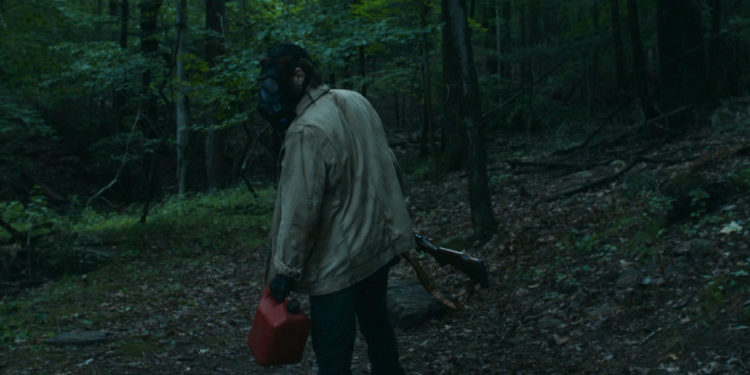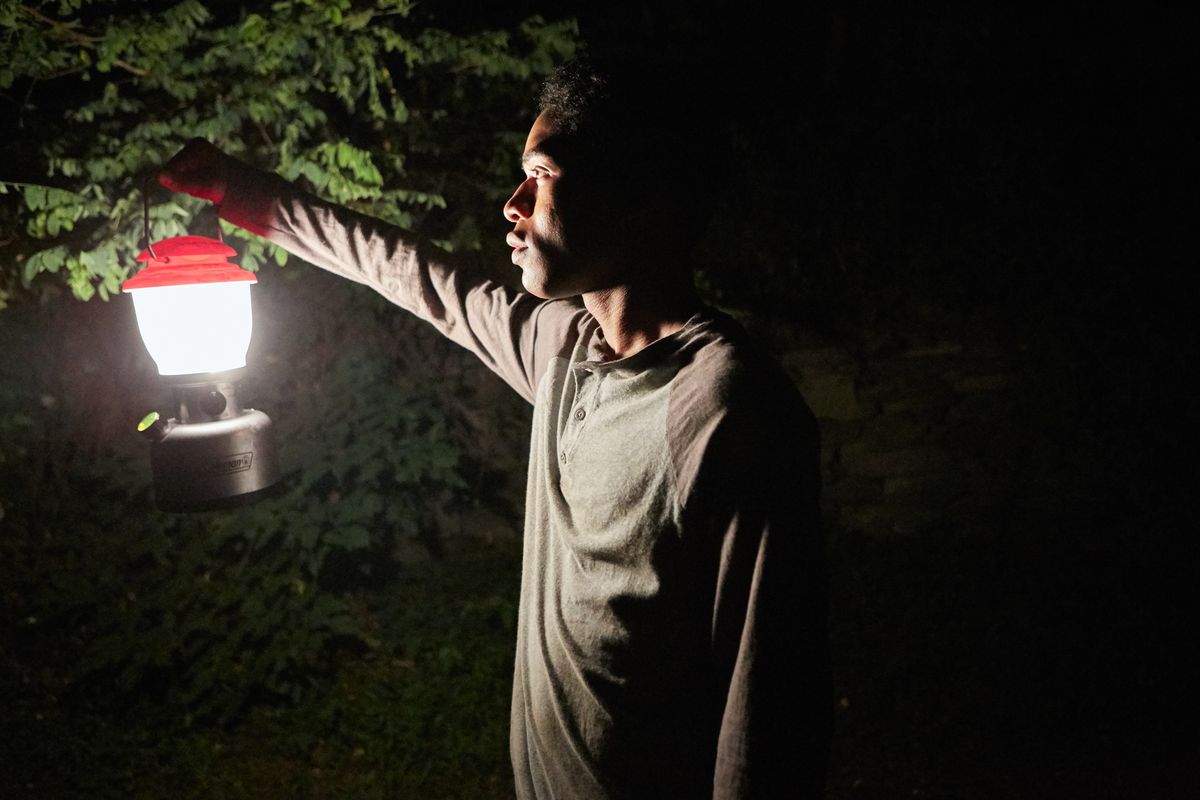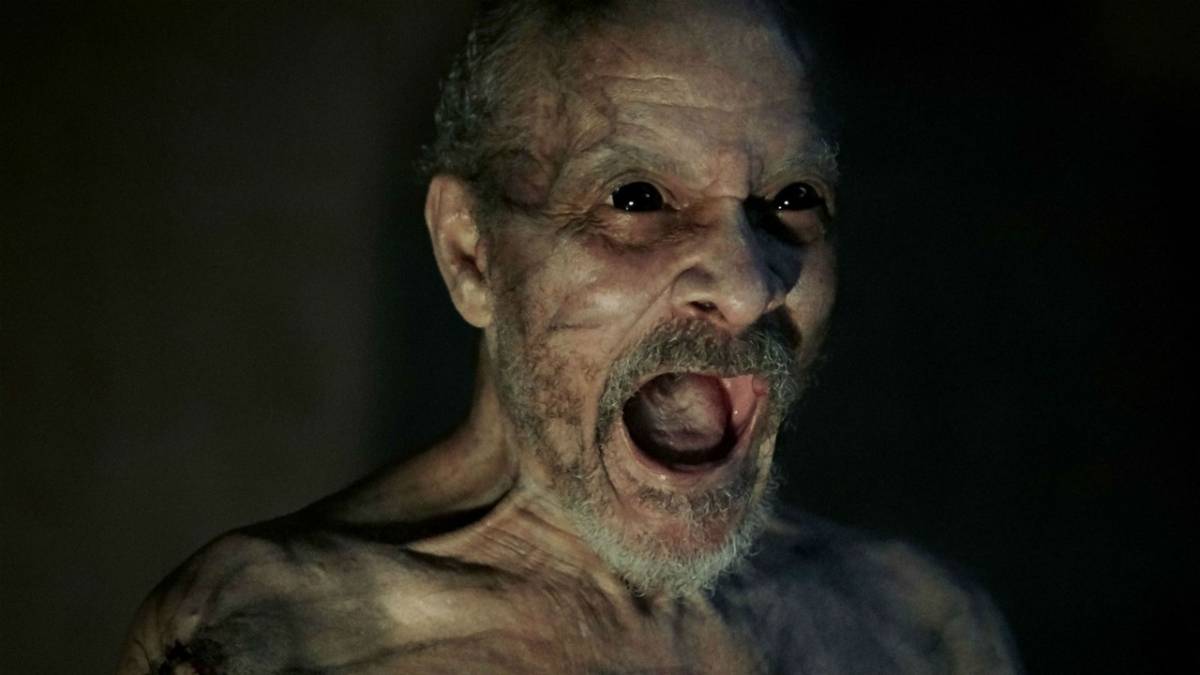Full transparency: this will contain spoilers for the film It Comes at Night. If you’ve not seen it and plan on doing so, then it’s probably best to stop here.
It’s a common rule told to aspiring writers: show don’t tell. If you’re going to introduce us to a character, have them in the middle of an action which divulges character (“in media res,” it’s known as). But what happens when you don’t show, nor tell? You get a movie which sticks with you far longer than a cheap jumpscare.
It Comes at Night gives us insight into a family unit who are surviving in the wilderness in a world left for ruin. Joel Edgerton’s Paul is the patriarch of the family, accompanied by his wife Sarah (Carmen Ejogo) and their teenage son Travis (Kelvin Harrison Jr.). New threats place their safety at risk, and the movie explores the effect of intense paranoia in a world where choosing incorrectly will result in agonising death.

If you deprive an audience of a clear onscreen threat, you can force them to conjure their own demons. It Comes at Night capitalises on this by placing us within a clearly dangerous world, but one which is ambiguously so. We know from the opening scene that there’s a debilitating virus which forces victims into a paralysed state with an agape mouth dribbling black bile, but we don’t know how they catch the disease or where it came from. Is the world in ruins? How soon after the outbreak does this take place? These are questions which can be pondered at, but that director Trey Shults refuses to provide answers for.
For some, this may prove too vague to engage with. One reviewer called the film an “absolute slog to sit through,” and said that it asked audiences to “literally conceive of an entire third act.” While I’d vehemently disagree with the former, I can’t argue that things are left intentionally subjective. Who really did open the locked red door, and who – or what – killed the family’s dog? Fingers are pointed throughout the drama, but a definitive answer is left to the viewer.

And it’s in this that I adore It Comes at Night; it cherishes the intelligence of its audience. Occasional slip-ups in conversations lead to mistrust and reevaluation – some of which are lingered on, and some which pass on by. For example, you’ve got the interaction between foreign entity Will (Christopher Abbott) and Paul, in which Will lets slip that it may not have been his brother they were previously staying with. Paul questions him on this, and plants the insidious seeds of mistrust. However, towards the conclusion, where Will and his wife are trying to escape with their maybe-sick son, he says to Paul’s wife Sarah that they need “enough food for the pair of them.” Pair? But there’s three of them in their family? Or, perhaps, has Will accidentally admitted that his son is indeed dying and won’t be around for very long? It’s never clarified, but it makes you look back on the film as a whole and try to weave the threads together in a coherent manner.
Then there’s the teenage Travis’ dreams which progressively get more malevolent as the film progresses. In these, the only haunting, distinct image is of the deceased grandfather vomiting black bile. There’s never a visualised entity which the title’s “It” can be referring to. The closest we come is in the sequence where Travis explores the wilderness with a rifle and screams at an unseen, off-camera terror. A terror we as the audience can only imagine. It gives the whole film an uneasy, paranoid feeling which makes even the most unsuspecting of dark corridors a potential hiding spot for a monster we know full well that we’ll never see.
If you absolutely hated It Comes at Night for its pacing, ending, or anything – I can’t really fault you. I’d argue that you need to reconsider your expectations for ‘horror’, but I can understand if the mainstream movie-goer would take the upcoming Annabelle: Creation over a more contemplative film like this. If you’ve enjoyed any of A24’s previous releases, though, like The Witch, Green Room, or Moonlight, then you’ll no doubt have loved this as much as I did.
Some of the coverage you find on Cultured Vultures contains affiliate links, which provide us with small commissions based on purchases made from visiting our site.

